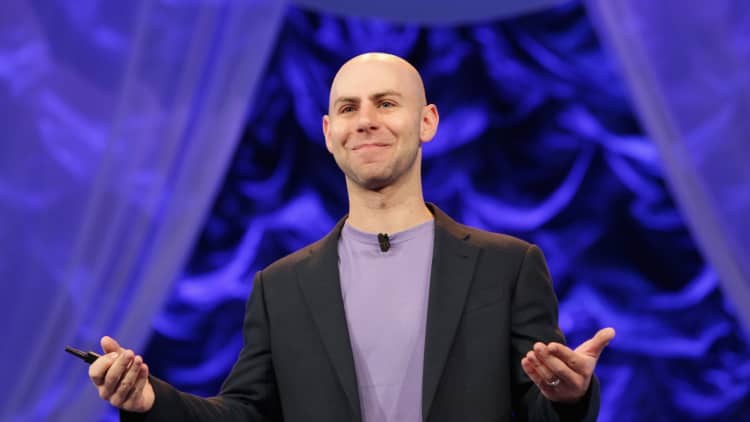You might think success and leadership go hand-in-hand. But Wharton psychologist Adam Grant says high achievers actually display a different trait: the ability to follow.
On Tuesday, Grant discussed the phenomenon on author Simon Sinek's "A Bit of Optimism" podcast. "I see a lot of students who want to lead and they don't know how to follow," Grant said. "You have a lot of people holding up signs saying 'This is my cause. This is my mission,' and not attracting a team behind them."
Grant isn't the first to notice how difficult it can be for self-proclaimed leaders to develop a following.
In 2018, Australian researchers studied more than 200 Royal Marine recruits in an elite training program, who had passed a series of psychological tests to qualify. The researchers set out to learn if the recruits who saw themselves as leaders would be seen the same way by their peers over time.
After tracking recruits' self-identification throughout a grueling 32 weeks of training, researchers found that the ones who saw themselves as natural leaders were ultimately unable to convince their peers.
"This elevation of those who seek to distance themselves from their group may actually be a recipe for failure, not success," the study's authors wrote. "It encourages leaders to fall in love with their own image and to place themselves above and apart from followers. And that is the best way to get followers to fall out of love with the leader."
Meanwhile, the recruits who saw themselves as followers were often seen by their peers as leaders. The paper's apt title: "I follow, therefore I lead."
The takeaway seems fairly straightforward. But there's a problem, Grant said: Despite an abundance of leadership research, there's no reliable playbook for learning to effectively develop following skills.
"I have not yet read a good articulation of how to be a great follower," Grant noted. "There's not a book. There's not a theory. There's not a model."
This may be due to a wider cultural aversion to stepping out of the spotlight, Sinek theorized on the podcast. Staying at the center of attention is often seen as a positive in American and global media, from social media influencers to politicians — and that's not always a healthy message.
"We live in a world that idolizes the leader," Sinek said. "Everybody wants to be that person, completely failing to recognize that no leader could ever achieve whatever they've achieved without hordes of people who supported them, believed in them ... [and] challenged them."
Sign up now: Get smarter about your money and career with our weekly newsletter
Don't miss: Harvard, Penn research says people like you more than you think—how to use that to your advantage


